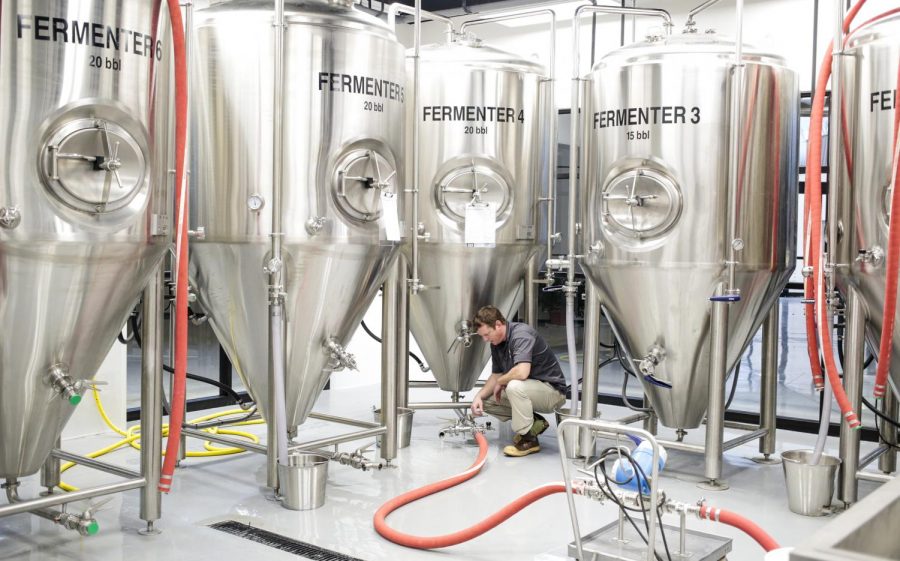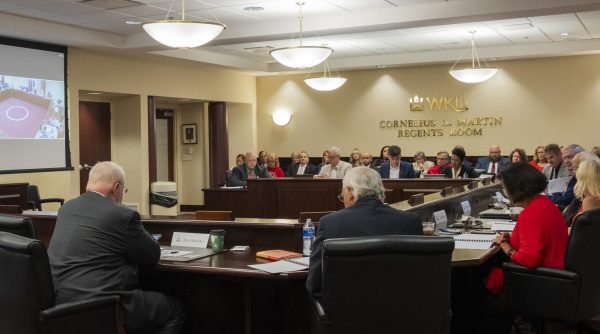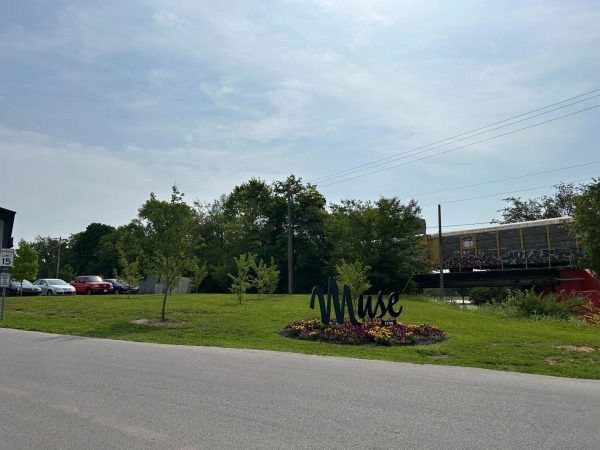WKU starts brewing, distilling program with Alltech
May 3, 2016
This semester, WKU successfully opened the largest on-campus brewery in the United States and was approved to launch its Certificate in Brewing and Distilling Arts and Sciences program.
The certificate is a joint project among three colleges: Potter College of Arts and Letters, Ogden College of Science and Engineering and Gordon Ford College of Business. It is the result of hard work by Andrew McMichael, assistant dean of Potter College, and Cathleen Webb, associate dean for research for Ogden College.
Graduate and undergraduate certification in Brewing and Distilling was approved at the second quarterly WKU Board of Regents meeting in April.
McMichael said the idea for the program really began to take shape during the summer of 2014 when he and Webb spent several days visiting various sized breweries.
When they visited each brewery, McMichael said they asked the brewers two questions.
“‘What would you want to see on a transcript from someone from Western if you were going to hire them?’ and ‘What do you wish you had known before you got in the business?’” McMichael said.
The responses McMichael and Webb received were consistent. Most brewers said they wished they had more knowledge about how to make a business plan, how to manage employees, how to make a label and how to navigate the law.
These answers provided the foundation for the certificate program, which requires students to take classes from a variety of disciplines. Currently, the undergraduate certificate requires classes in brewing and distilling, entrepreneurship and history as well as an internship in brewing or distilling.
Webb said knowledge in all of those subjects will help students understand all sides of the industry.
“In a craft brewery that person, the craft brewer, has to be the sanitation manager, has to be the fermentation scientist, and so they need a little bit of everything,” Webb said. “ A liberal arts degree is very appropriate.”
The program also includes another aspect brewers said was often missing: hands-on experience.
“Another thing that we took away from the summer of 2014 was that hands-on experience was absolutely critical, and the more hands-on experience an employee had, the more likely they would be to be hired,” Webb said.
McMichael said hands-on experience is vital when applying to work for a small brewery.
“When you’re running a small business — and there are maybe four or five of you — you don’t want to bring in a fifth person, 20 percent of your labor force, who doesn’t know what they’re doing and have to spend months training them,” McMichael said.
Hands-on experience also holds true to the history of brewing. Webb said that in the past, the industry was built on an apprenticeship model.
“We have tried to incorporate that into our curriculum,” Webb said.
One student who showed interest in the program now works for the brewery gaining experience that will help her in the future.
Lexie Baker, a senior from Bowling Green, said she had no experience with brewing when she was first hired. This semester she took a course with McMichael, and he asked Baker if she would like to work at the brewery. So far, Baker said, she has enjoyed the job.
“It’s just a really neat experience,” Baker said. “You a learn a lot hands on — more than you ever could in the classroom.”
Baker said when she first began working for the brewery, she would follow brewery supervisor Joseph Walls around to learn about the process.
Before Baker and another part-time student worker were hired, Walls, an Alltech employee, was the only employee working in the brewery. It was his job to monitor the brewing process and make the beer, which is an American pale ale called College Heights Ale.
Walls said the beer will not be sold on campus. Instead, it will be marketed to local restaurants.
Baker, who has only taken one brewing and distilling class, said she would recommend that other students take advantage of the opportunity.
“I’ve taken the one class, and I definitely encourage students who are interested in brewing at all to take the classes that they’re going to offer,” Baker said.
Inspiration for the program would have remained just an idea if Webb and McMichael had not been able to form a partnership with Alltech, a brewing and distilling company in Lexington.
McMichael said when they met with Alltech, the company expressed interest in expanding its brewery and continuing education in the science of brewing.
Alltech had recently begun work on a brewery and distillery in Pikeville, and McMichael said the company was now interested in expanding into the western portion of the state.
“In some ways, we were in the right place at the right time,” McMichael said, adding that Alltech had already received offers to partner with other Kentucky universities.
Webb said Alltech’s willingness to partner with WKU instead of other universities may have been because of the innovation of WKU’s program.
“Most programs around the country, the few that exist, are … effectively chemistry degrees with a specialization in fermentation science, or they’re a hospitality degree,” Webb said.
McMichael said there is nothing wrong with this approach.
“Those work fine for some situations. It’s just that no one we talked to in the industry tells us that’s what they need,” McMichael said.
McMichael and Webb attribute the program’s relatively quick success to their partnership with Alltech. In addition to providing the machines for the brewery, which is located in the WKU Center for Research and Development, Alltech also made a $150,000 commitment to WKU over the next five years.

























